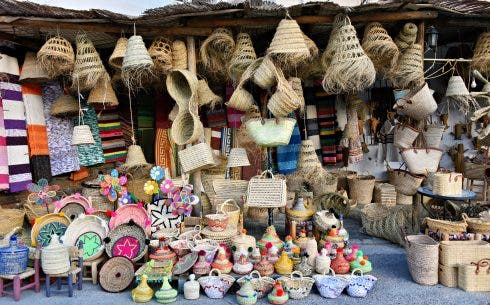IN this era of moving towards sustainability, “slow fashion” and handcrafted goods are increasingly popular. The rural Alpujarra of Granada has a tradition of using natural resources to create artisan products. This dates to Neolithic times, over 4,500 years ago, when primitive craftspeople made their own footwear, baskets, vessels, ceramics, and metal weapons.
Some of the old crafts remain today. The white villages nestling on the south flank of the Sierra Nevada are the perfect place to shop for ‘jarapas’ (rugs), leather goods, mimbre (wicker), woven esparto grass, ceramics, cast iron products, and more. These predominate in Pampaneira, Capileira and Bubion, which also are considered amongst Spain’s “most beautiful” villages.
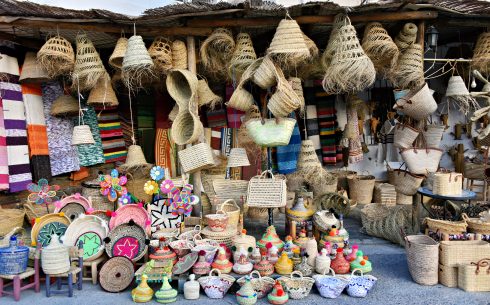
In the Alpujarra, you’ll also find modern products made from natural fibres. These include cotton bags, hats and cushion covers, customised preloved clothes, Macarame crafts, handmade, and hand-dyed garments.
Colourful ‘jarapas’
Passed down through the generations, the tradition of weaving Alpujarran rugs can be traced back to Muslim times. Historically, weaving was mainly done in the winter when crops required less work. The resulting ‘jarapas’ are thick, colorful, woven products that can be used as rugs, bedspreads, blankets, or wall hangings. In the past, old clothes went on the weaving loom but, today, wool and cotton are used.
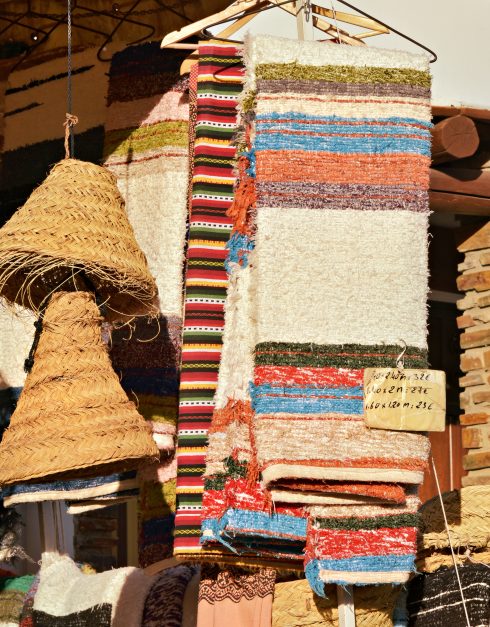
Mimbre (wicker)
A few decades ago, various families from Lanjarón and the nearby Lecrín Valley worked making wicker items such as baskets, vases, chairs, lamps, bottle racks, mirrors, and shelves. Today, only a few wicker craftspeople remain. If you visit the spa town of Lanjarón, you can find mimbre products created by locals.
Esparto braiding
The Alpujarra is rich in esparto grass, as well as other natural fibres, and this is used to make everything from baskets to bottle holders, sunshades, donkeys’ heads, espadrilles, chair seats, and many other items – some practical, some novelty. Esparto was originally braided to create objects and utensils related to farming. In Alpujarran villages, some elderly people sit on their doorsteps braiding esparto as a hobby.
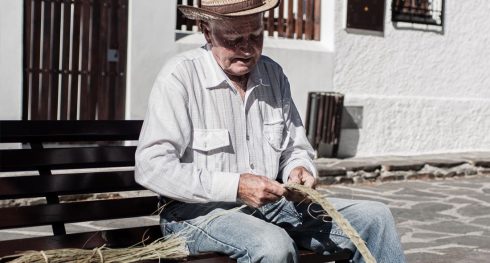
Ceramics
The Alpujarra and Granada have a long history of pottery, dating back to Moorish times. The area is rich in clay, which can be fired in wood-burning kilns. Pitchers, pots, jars, bowls, utensils, plates and tiles are all made manually, using a potter’s wheel. Moorish potteries survive in towns such as Órgiva, Torvizcón and Ugíjar, as well as Granada. Ceramics with Nasrid heritage have been found, including distinctive pieces featuring green and blue glazes with patterns representing birds, pomegranates and flowers. These colours and motifs are still used today.
Upcycle, recycle!
The market town of Órgiva has several stores where you can buy preloved or upcycled items. Kushti, on Calle Yanez, is a new store selling these ethical goods.
The proprietor told the Olive Press “One of the key aspects here is recycling. Our self-sourced, vintage range contains homeware, clothing, textile, and curiosities from all over the world including India, Nepal, Morocco, France, the UK and beyond. All goods are fair trade and handmade and we have relationships with some makers going back 25 years, including an ashram in India. We also sell various items made from vintage saris. This makes each item unique.”
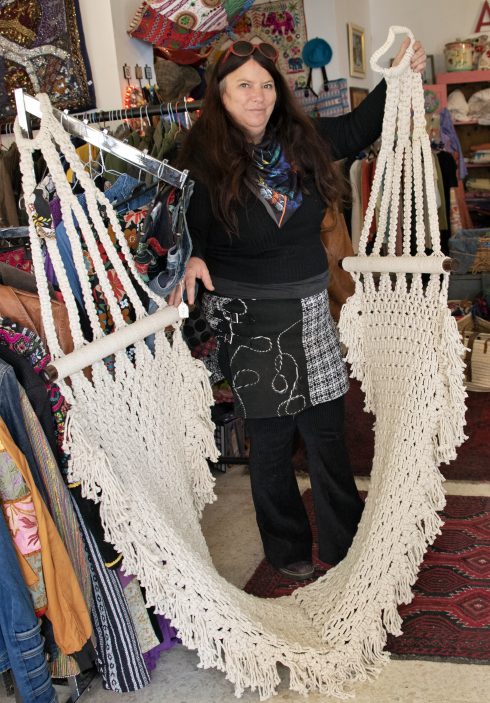
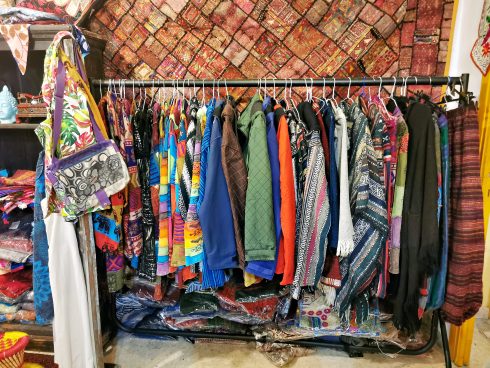
Órgiva also boasts two charity shops – a rarity in rural Spain. You can bag clothes costing as little as 1e apiece, as well as books and homewares. Just along the road, Lanjarón has the Acompalia charity shop that supports those needing end of life care. It sells clothes, homeware, books, and electrical items.
Órgiva is also a top destination to visit car boot sales, artisan, and recycling markets, as well as the municipal market that occurs every Thursday. It is a world of ethical bargains.
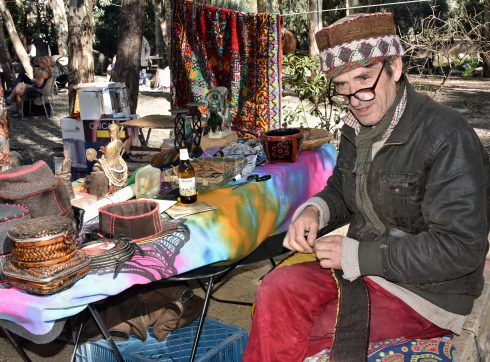


Where to shop for ethical goods
- Recycling market, Rio Chico, Órgiva – every first and third Sunday of the month.
- Órgiva market day with artisan crafts section in the town plaza – every Thursday morning.
- Mujeres Asociacion charity shop, Órgiva – open every Thursday morning.
- Acompalia charity shop, Lanjarón.
- Pampaneira, Capileira and Bubion for funky craft shops, leather goods, jarapas, the Atilier Vintage furniture store, and artisan markets.
- Soportújar (avoid peak weekend and bank holiday times).
- Cadiar – Mercado Agro-Arte-Sano (check online).
READ MORE

